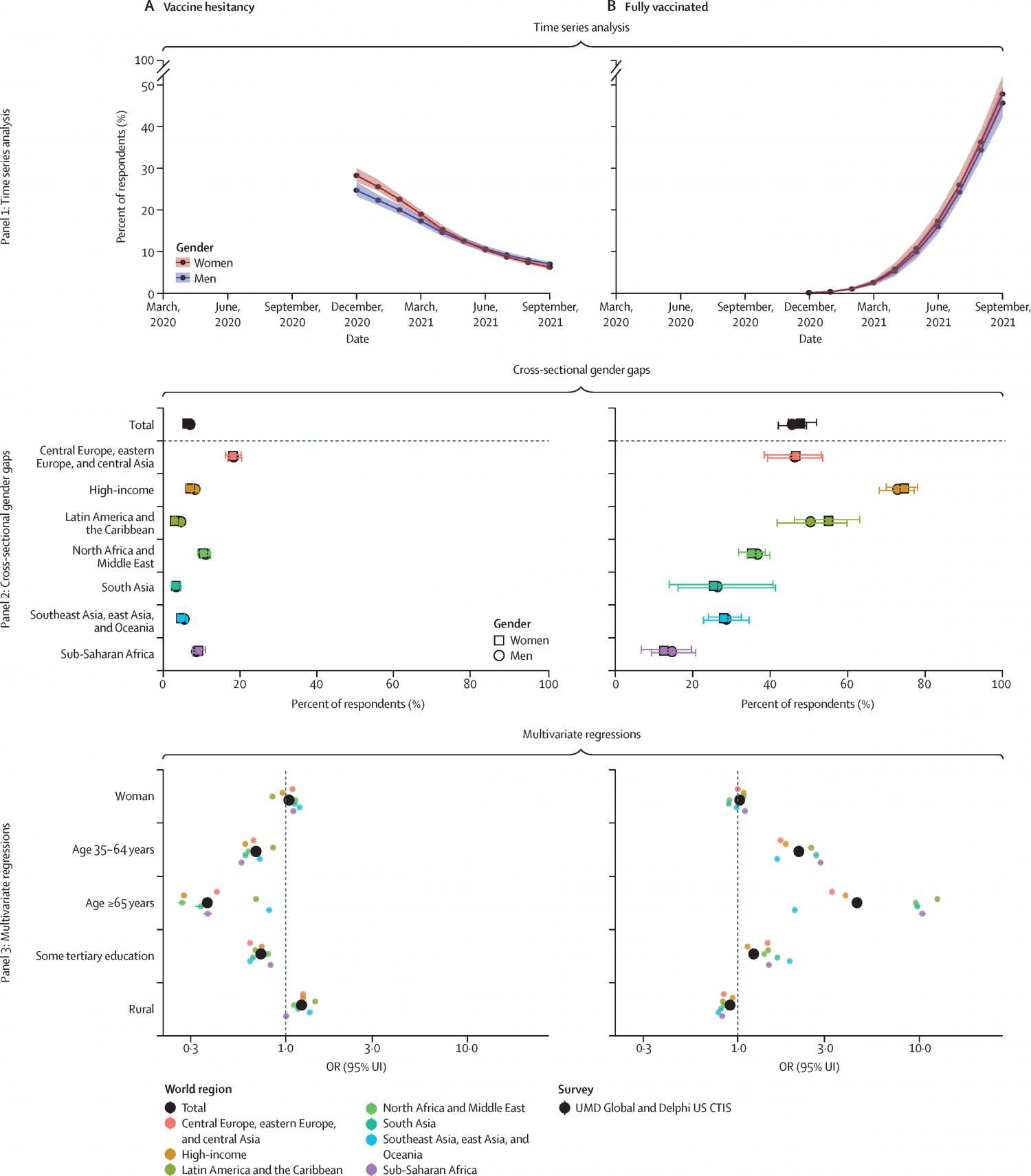
Background: Gender is emerging as a significant factor in the social, economic, and health effects of COVID-19. However, most existing studies have focused on its direct impact on health. Here, we aimed to explore the indirect effects of COVID-19 on gender disparities globally. Methods: We reviewed publicly available datasets with information on indicators related to vaccine hesitancy and uptake, health care services, economic and work-related concerns, education, and safety at home and in the community. We used mixed effects regression, Gaussian process regression, and bootstrapping to synthesise all data sources. We accounted for uncertainty in the underlying data and modelling process. We then used mixed effects logistic regression to explore gender gaps globally and by region. Findings: Between March, 2020, and September, 2021, women were more likely to report employment loss (26·0% [95% uncertainty interval 23·8–28·8, by September, 2021) than men (20·4% [18·2–22·9], by September, 2021), as well as forgoing work to care for others (ratio of women to men: 1·8 by March, 2020, and 2·4 by September, 2021). Women and girls were 1·21 times (1·20–1·21) more likely than men and boys to report dropping out of school for reasons other than school closures. Women were also 1·23 (1·22–1·23) times more likely than men to report that gender-based violence had increased during the pandemic. By September 2021, women and men did not differ significantly in vaccine hesitancy or uptake. Interpretation: The most significant gender gaps identified in our study show intensified levels of pre-existing widespread inequalities between women and men during the COVID-19 pandemic. Political and social leaders should prioritise policies that enable and encourage women to participate in the labour force and continue their education, thereby equipping and enabling them with greater ability to overcome the barriers they face. Funding: The Bill & Melinda Gates Foundation.
